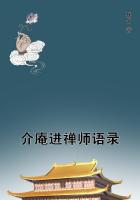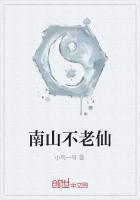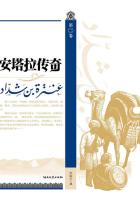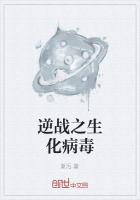Paul calls the Virgin Mary a woman. This has been frequently deplored even by some of the ancient fathers who felt that Paul should have written "virgin" instead of woman. But Paul is now treating of faith and Christian righteousness, of the person and office of Christ, not of the virginity of Mary. The inestimable mercy of God is sufficiently set forth by the fact that His Son was born of a woman. The more general term "woman" indicates that Christ was born a true man. Paul does not say that Christ was born of man and woman, but only of woman. That he has a virgin in mind is obvious.
This passage furthermore declares that Christ's purpose in coming was the abolition of the Law, not with the intention of laying down new laws, but "to redeem them that were under the law." Christ himself declared: "I judge no man." (John 8:15.) Again, "I came not to judge the world, but to save the world." (John 12:47.) In other words: "I came not to bring more laws, or to judge men according to the existing Law. I have a higher and better office. I came to judge and to condemn the Law, so that it may no more judge and condemn the world."
How did Christ manage to redeem us? "He was made under the law." When Christ came He found us all in prison. What did He do about it? Although He was the Lord of the Law, He voluntarily placed Himself under the Law and permitted it to exercise dominion over Him, indeed to accuse and to condemn Him. When the Law takes us into judgment it has a perfect right to do so. "For we are by nature the children of wrath, even as others." (Eph. 2:3.) Christ, however, "did no sin, neither was guile found in his mouth." (I Pet. 2:22.) Hence the Law had no jurisdiction over Him. Yet the Law treated this innocent, just, and blessed Lamb of God as cruelly as it treated us. It accused Him of blasphemy and treason. It made Him guilty of the sins of the whole world. It overwhelmed him with such anguish of soul that His sweat was as blood. The Law condemned Him to the shameful death on the Cross.
It is truly amazing that the Law had the effrontery to turn upon its divine Author, and that without a show of right. For its insolence the Law in turn was arraigned before the judgment seat of God and condemned. Christ might have overcome the Law by an exercise of His omnipotent authority over the Law. Instead, He humbled Himself under the Law for and together with them that were under the Law. He gave the Law license to accuse and condemn Him.
His present mastery over the Law was obtained by virtue of His Sonship and His substitutionary victory.
Thus Christ banished the Law from the conscience. It dare no longer banish us from God. For that matter,--the Law continues to reveal sin. It still raises its voice in condemnation. But the conscience finds quick relief in the words of the Apostle: "Christ has redeemed us from the law." The conscience can now hold its head high and say to the Law: "You are not so holy yourself. You crucified the Son of God. That was an awful thing for you to do. You have lost your influence forever."
The words, "Christ was made under the law," are worth all the attention we can bestow on them. They declare that the Son of God did not only fulfill one or two easy requirements of the Law, but that He endured all the tortures of the Law. The Law brought all its fright to bear upon Christ until He experienced anguish and terror such as nobody else ever experienced. His bloody sweat. His need of angelic comfort, His tremulous prayer in the garden, His lamentation on the Cross, "My God, my God, why hast thou forsaken me?" bear eloquent witness to the sting of the Law. He suffered "to redeem them that were under the law."
The Roman conception of Christ as a mere lawgiver more stringent than Moses, is quite contrary to Paul's teaching. Christ, according to Paul, was not an agent of the Law but a patient of the Law. He was not a law-giver, but a law-taker.
True enough, Christ also taught and expounded the Law. But it was incidental.
It was a sideline with Him. He did not come into the world for the purpose of teaching the Law, as little as it was the purpose of His coming to perform miracles. Teaching the Law and performing miracles did not constitute His unique mission to the world. The prophets also taught the Law and performed miracles. In fact, according to the promise of Christ, the apostles performed greater miracles than Christ Himself. (John 14:12.) The true purpose of Christ's coming was the abolition of the Law, of sin, and of death.
If we think of Christ as Paul here depicts Him, we shall never go wrong. We shall never be in danger of misconstruing the meaning of the Law. We shall understand that the Law does not justify. We shall understand why a Christian observes laws: For the peace of the world, out of gratitude to God, and for a good example that others may be attracted to the Gospel.
VERSE 5. That we might receive the adoption of sons.
Paul still has for his text Genesis 22:18, "In thy seed shall all the nations of the earth be blessed." In the course of his Epistle he calls this promise of the blessing righteousness, life, deliverance from the Law, the testament, etc. Now he also calls the promise of blessing "the adoption of sons," the inheritance of everlasting life.
What ever induced God to adopt us for His children and heirs? What claim can men who are subservient to sin, subject to the curse of the Law, and worthy of everlasting death, have on God and eternal life? That God adopted us is due to the merit of Jesus Christ, the Son of God, who humbled Himself under the Law and redeemed us law-ridden sinners.
VERSE 6. And because ye are sons, God hath sent forth the Spirit of his Son into your hearts.















